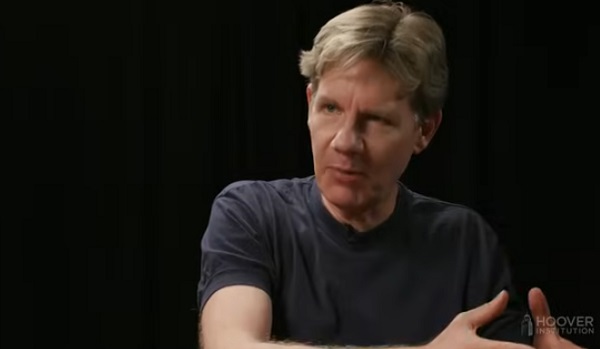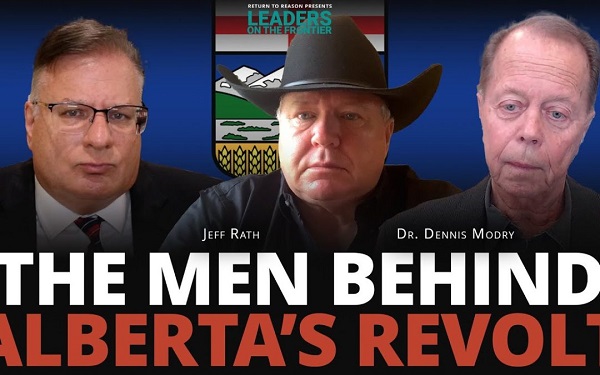Podcasts
Doing “The Best Things First,” with Bjorn Lomborg | Uncommon Knowledge

From Uncommon Knowledge by the Hoover Institution
Bjorn Lomborg is president of the Copenhagen Consensus Center, a think tank dedicated to applying economic analysis, including cost-benefit analysis, to proposed policies around the issues of the day. He’s also a visiting professor at Copenhagen Business School and visiting fellow at the Hoover Institution at Stanford University. He’s the author of many books, including the 2001 bestseller The Skeptical Environmentalist.
His latest book, and the topic for this interview, is Best Things First. Offering cost-benefit analyses of many of the top-line policies of industrial and developing nations, Dr. Lomborg discusses which policies we should prioritize and which we should pay less attention to or end. Lomborg also asserts the benefits of economic growth and says that by spending on technology, we can solve all kinds of big problems, including hunger.
Business
Canada should already be an economic superpower. Why is Canada not doing better?

From Resource Works
Tej Parikh of the Financial Times‘s says Canada has the minerals but not the plan
Tej Parikh is the economics editorial writer for The Financial Times, a British daily newspaper. He joins our Stewart Muir for a Power Struggle interview. And we include in the following report some points from a guest column by Parikh in Canada’s National Post, which carried the headline ‘How Canada can unlock its economic superpower potential.’
Parikh begins the Power Struggle interview with this: “There’s an enormous economic potential here, very much the same geographic advantages that have underpinned America’s economic emergence over the last 100 years. . . . Given everything we understand about the advantages that countries need to grow, why is Canada not doing better economically?” He added: “When you break it down and you look at why income per capita in Canada has perhaps not increased as fast as we might expect on the basis of those advantages, it really kind of breaks down to three components. One is investment, so how much capital goes into the country?
The second is labour, and not just the amount, the size of the workforce you have, but how well you utilize the workforce. And then the third component is something that economists like to call a total-factor productivity, which is essentially your innovative ability and your ability to bring together capital and people. “And when you look at Canada as opposed to other large economies . . . you begin to see that actually there are a lot of restrictions in Canada, not just because of its vast geography but because of regulation, that it actually can’t combine its capital and labour as productively as it could.
“It’s about creating those supply chains and critical minerals that the Western world is currently short of. Given it (Canada) has these vast raw material resources, there is a massive scope for it to become even more integrated into Western supply chains in particular and to become a supplier of these things.” From Parikh’s National Post column: “The country is energy independent, with the world’s largest deposits of high-grade uranium and the third-largest proven oil reserves. It is also the fifth-largest producer of natural gas.Canada boasts a huge supply of other commodities too, including the largest potash reserves (used to make fertilizer), over one-third of the world’s certified forests and a fifth of the planet’s surface freshwater. Plus, it has an abundance of cobalt, graphite, lithium and other rare earth elements, which are used in renewable technologies. “But the nation has lacked the visionary leadership and policy framework to capitalize on its advantages.”
Watch the full interview here:
Alberta
Why Some Albertans Say Separation Is the Only Way

From the Frontier Centre for Public Policy
-

 Business1 day ago
Business1 day agoMark Carney’s Fiscal Fantasy Will Bankrupt Canada
-

 Opinion1 day ago
Opinion1 day agoCharity Campaigns vs. Charity Donations
-

 Alberta1 day ago
Alberta1 day agoTemporary Alberta grid limit unlikely to dampen data centre investment, analyst says
-

 Frontier Centre for Public Policy2 days ago
Frontier Centre for Public Policy2 days agoCanada’s New Border Bill Spies On You, Not The Bad Guys
-

 Daily Caller20 hours ago
Daily Caller20 hours ago‘Strange Confluence Of Variables’: Mike Benz Wants Transparency Task Force To Investigate What Happened in Butler, PA
-

 Uncategorized2 days ago
Uncategorized2 days agoCNN’s Shock Climate Polling Data Reinforces Trump’s Energy Agenda
-

 Opinion1 day ago
Opinion1 day agoPreston Manning: Three Wise Men from the East, Again
-

 COVID-191 day ago
COVID-191 day agoTrump DOJ dismisses charges against doctor who issued fake COVID passports


